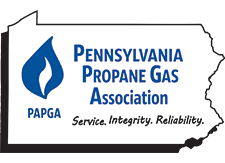
DOT Halts 10-Year Cylinder Requalification Enforcement Pending Further Review
NPGA has received formal notice from the Pipeline and Hazardous Materials Safety Administration (PHMSA) of the Department of Transportation (DOT) that the agency will not take enforcement action against the requalification of DOT-specification cylinders by volumetric testing according to a 12-year period, as previously authorized in 49 CFR 180.209(e). PHMSA will allow either a 12 or 10 year requalification period for volumetric expansion testing while the agency reviews NPGA’s Petition to return the cylinder requalification period to 12 years. A copy of the Enforcement Notification is available through the membership portal of the NPGA website. Members are encouraged to retain a copy of the notice.
NPGA argued for PHMSA to halt enforcement of the change in the requalification period and challenged the validity of the rulemaking that reduced the requalification period to 10 years. PHMSA formally accepted NPGA’s Petition for Rulemaking to return the cylinder requalification period to 12 years, in conjunction with the Enforcement Notice, and in doing so, the agency’s action initiates the rulemaking process; it is not a final rule. The next step in the rulemaking process is publication of the rulemaking in the Federal Register.
As we reported previously, as part of a broader rulemaking, PHMSA changed 49 CFR 180.209(e) to reduce the initial requalification period for DOT cylinders following volumetric expansion testing from 12 years to 10 years and to increase the timeframe for requalification following a proof pressure test from 7 years to 10 years. Nowhere, in either the proposed rule or final rule, did PHMSA provide any rationale or substantiation for the changes or address them in any form.
In response, NPGA aggressively pursued this issue with PHMSA and engaged the support of members of Congress as well as prepared legal measures in order to secure a correction to this substantive, yet unjustified change to industry practice. NPGA continues to communicate with PHMSA on final correction to return to the 12 year period through the rulemaking process. NPGA will continue to keep you apprised of developments.
If you have any questions, please contact Mike Caldarera at mcaldarera@npga.org or Sarah Reboli at sreboli@npga.org.

 Mower Equipment
Mower Equipment